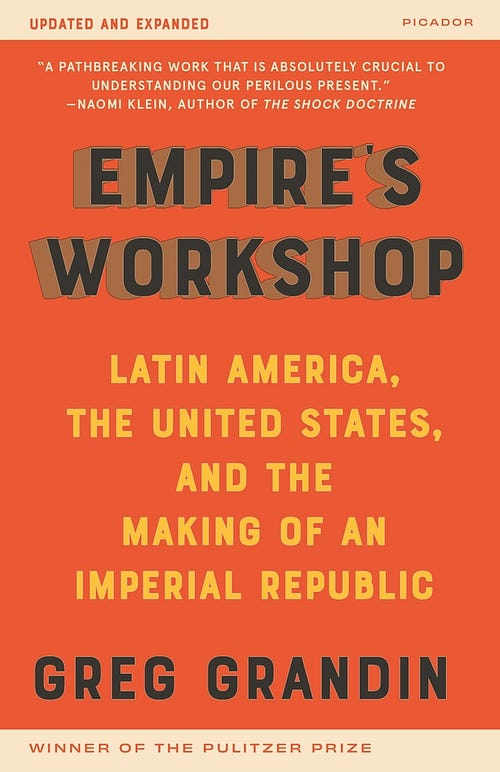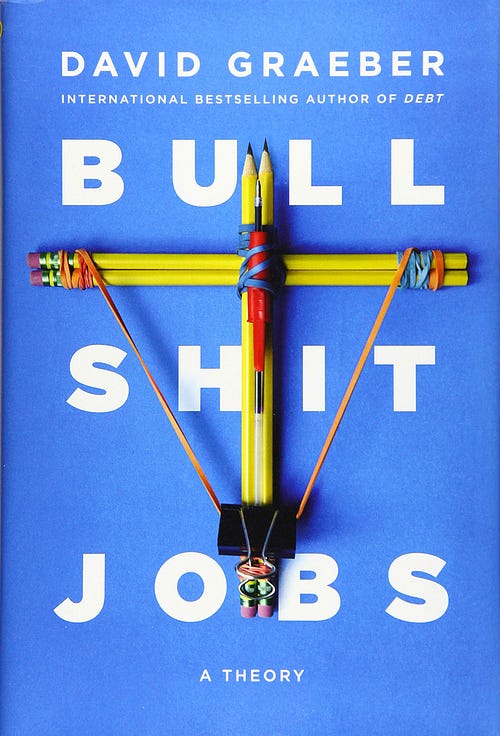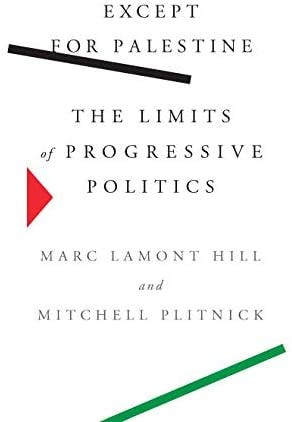Welcome to the first edition of Reading Roundup, where ATX DSA members share what they’ve been reading and how it’s informing their political education. Special thanks to Austin DSA member Chris F. for this graphic!
Empire’s Workshop: Latin America, the United States, and the Rise of the New Imperialism by Greg Grandin

A very informative history of American Imperialism in Central and South America. Grandin’s detailed account covers decades of U.S. involvement in the region with great detail while being highly readable and engaging. From U.S. military trained death squads to CIA funded military coups, he shows how the U.S. used Latin America as a proving ground for modern-day terror campaigns in the Middle East and elsewhere. The recent victories won by working class parties in Latin America bring attention to this region and how American Imperialism still looms heavy. Great lessons can be learned by looking at the history of this part of the world. Highly recommended if you want to learn just how far the American Government has gone and is willing to go to ensure dominance over the various working class movements that persist in this region.
— John P.
Bullshit Jobs by David Graeber

Graeber points out how the idea that capitalism is supposed to eliminate waste is false and how yes, previous socialist regimes created millions of dummy proletarian jobs, but capitalist regimes “preside over the creation of millions of dummy white-collar jobs instead.” After his viral 2013 essay “On the Phenomenon of Bullshit Jobs: A Work Rant,” hundreds of people wrote in to tell him about their bullshit jobs: Gerte who fills a candy dish, winds a grandfather clock, and answers one phone call per day. Layla who checks to make sure overseas firms aren’t participating in corrupt business practices from her apartment in Brooklyn. Ben, a middle manager whose only task is to make sure his subordinates do their work and is certain nothing would change if he weren’t there. Graeber shows how pointlessness exacerbates boredom and anxiety, how it’s hard to repurpose idle time when it’s been “sold” to a boss, and how the classical economic theory that states that “everyone, left to his own devices, will choose the course of action that provides the most of what he wants for the least expenditure of resources and effort” is wrong. The anecdotes read like Post Secret confessions. If you’ve ever had a bullshit job, it will make you feel seen, and if you’ve only had shit jobs, it will enrage you. Graeber’s voice and humor make it a real pleasure to read.
— Phoebe W.
Rebel Rank and File Edited by Aaron Brenner, Robert Brenner, Cal Winslow

An inspiring history of the “Long 1970s,” the last major labor upsurge in the United States which lasted from the early 1960s through 1981.
A collection of essays from many activists involved in a wide variety of unions, the book presents the rank-and-file militancy of the period. The authors chart the drastic increase in wildcat and base-led strikes from the first major successful reform movement, United Mine Workers’s “Miners for Democracy,” through the activities of Teamsters, teachers, telephone and auto workers. There’s also a chapter highlighting the women’s movement’s interaction with labor groups at this time. Documenting the failure of union leadership to prepare for or respond to capital’s onslaught in the face of falling profits and, in the case of auto, Black worker resistance to racist managers and union leaders, the authors follow the exciting rise and depressing fall in workers’ strikes and other self-activity.
However, as long-timers in the labor movement, they also discuss reasons for the downturn. Despite the strong similarities unions were facing — pressure to speed-up, threatened safety standards, and decreased union control of the worksite — there was little or no communication or cooperation across industries. Outside of small numbers of radicals who had “industrialized,” there was little influence in the labor movement. The main chapters plus overviews by several major figures including Kim Moody will help prepare labor activists of today get ready for the fire next time.
— Joshua F.
Except for Palestine: The Limits of Progressive Politics by Marc Lamont Hill, Mitchell Plitnick

Unwavering Republican support for Israel’s occupation of Palestine is to be expected and is consistent with Republican values, overall. Yet, how is it that liberal and progressive Democrats who aggressively fight Republicans on issues such as reproductive justice, LGBTQ rights, gun control, and human rights for immigrants crossing the U.S.-Mexico border, are often in lockstep with Republicans on the issue of Israel and Palestine? Without going into the psychology of left-leaning Democrats who have been largely silent on Israel’s human rights abuses, the authors explore the relevant history and key factors that have contributed to bipartisan support for Israel, while making the case that Palestinian lives matter and to be a principled and anti-racist progressive requires supporting movements like BDS and fighting to change U.S. policy that backs Israel’s occupation of Palestine.
— Ryan K.
Capitalist Realism by Mark Fisher

An essential read for the contemporary socialist living in an imperial core. Mark Fisher gives us a shrewd diagnosis of the state of capitalism, not just economically, but the cultural and psychological effects it has on us all. Fisher combines metaphysics, pop culture, and the ordinary moments of day-to-day life to masterfully etch an image of our collective neurosis caused by capitalism — but not without a proposed cure to this parasite of humanity. This is a book that never finds itself in my bookcase — it’s always within arms reach for me to return to its nuggets of wisdom.
— Chris H.
Interested in submitting a reading recommendation for next month? You can reach out to us via the Austin DSA Slack!

